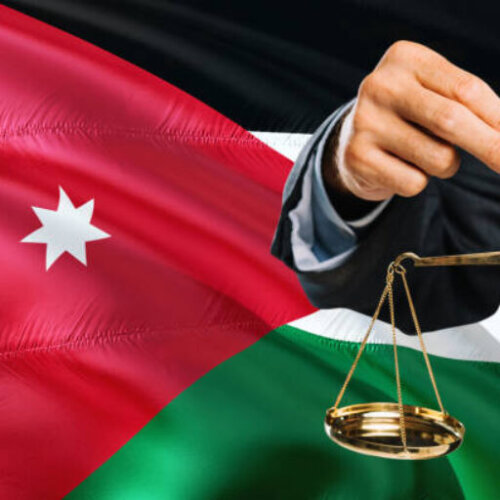Best Bankruptcy Lawyers in Amman
Share your needs with us, get contacted by law firms.
Free. Takes 2 min.
List of the best lawyers in Amman, Hashemite Kingdom of Jordan

About Bankruptcy Law in Amman, Hashemite Kingdom of Jordan
Bankruptcy in Amman, the capital of the Hashemite Kingdom of Jordan, falls under the purview of Jordanian Commercial Law. The legal framework aims to provide a structured process for businesses and individuals who are unable to meet their debt obligations. This process allows for the restructuring or liquidation of assets, with the goal of preserving rights for both debtors and creditors while minimizing financial instability in the economy.
Why You May Need a Lawyer
Dealing with bankruptcy can be a complicated and emotionally challenging process. People may require legal assistance in situations where they find themselves unable to pay their debts, facing foreclosure or repossession, or experiencing aggressive collection practices by creditors. A lawyer can help in negotiating with creditors, understanding rights and obligations, preparing necessary documentation, and representing the interests of their clients in court.
Local Laws Overview
In the Hashemite Kingdom of Jordan, bankruptcy and insolvency are governed by specific provisions within the Commercial Law. Key aspects include the procedures for declaring bankruptcy, the rights and obligations of the debtor and creditors, and the roles of the court and trustee. Under Jordanian law, bankruptcy is considered a legal state where a debtor is unable to repay outstanding debts. The law provides for the restructuring of debts, the liquidation of assets, and the equitable distribution of any remaining assets to creditors.
Frequently Asked Questions
What is the legal process for declaring bankruptcy in Jordan?
The process typically begins with a formal petition to the court. If the court finds that the debtor is indeed insolvent, it will declare a state of bankruptcy and appoint a trustee to manage the debtor’s estate.
Can both individuals and businesses file for bankruptcy?
Yes, both individuals and business entities in Jordan can file for bankruptcy under the applicable sections of the Commercial Law.
How does bankruptcy affect my credit and ability to use financial services in Jordan?
Declaring bankruptcy will generally have a negative impact on your credit score and may limit your access to financial services for a period of time. However, it also allows the opportunity to manage debt and work towards financial recovery.
Are there alternatives to bankruptcy that a lawyer might recommend?
A lawyer might suggest alternatives such as debt restructuring, settlement negotiations, or out-of-court agreements with creditors, depending on the specific situation.
What happens to my assets if I declare bankruptcy?
Upon declaring bankruptcy, the court may order the liquidation of assets to satisfy creditor claims. However, some exemptions exist depending on the type of assets and the nature of the debt.
Is it possible to keep my home or car if I file for bankruptcy?
Whether you can keep your property, like a home or car, depends on the equity you hold in these assets and the specific circumstances of your bankruptcy case. Consult with a lawyer for personalized advice.
How long does the bankruptcy process take in Jordan?
The duration of the bankruptcy process can vary widely depending on the complexity of the case, but it typically takes several months to a few years to complete.
What role does a trustee play in the bankruptcy process?
A trustee is appointed by the court to oversee the bankruptcy case. They are responsible for managing the debtor's estate, liquidating assets, and distributing funds to creditors.
Can bankruptcy filings be overturned or challenged in court?
Yes, filings can be challenged by creditors or other stakeholders, typically if there is evidence of fraud or misrepresentation by the debtor.
What are the long-term consequences of declaring bankruptcy?
Long-term consequences can include a diminished credit score, difficulty obtaining loans or credit in the future, and a requirement to disclose the bankruptcy in certain financial situations.
Additional Resources
For further assistance, consider reaching out to the following resources:
- The Jordanian Ministry of Justice
- The Jordan Bar Association
- Legal aid organizations in Amman
- Financial advisory services
Next Steps
If you believe you may need legal assistance with bankruptcy, the following steps can guide you:
- Consult with a qualified legal professional specializing in bankruptcy law to discuss your situation and options.
- Gather all relevant documents, including financial statements, debts, and assets.
- Explore alternative solutions to bankruptcy, if applicable, with your attorney.
- Proceed with filing for bankruptcy through the legal channels if advised.
Remember, each situation is unique, and professional legal advice is essential in ensuring your rights are protected throughout the process.
Lawzana helps you find the best lawyers and law firms in Amman through a curated and pre-screened list of qualified legal professionals. Our platform offers rankings and detailed profiles of attorneys and law firms, allowing you to compare based on practice areas, including Bankruptcy, experience, and client feedback.
Each profile includes a description of the firm's areas of practice, client reviews, team members and partners, year of establishment, spoken languages, office locations, contact information, social media presence, and any published articles or resources. Most firms on our platform speak English and are experienced in both local and international legal matters.
Get a quote from top-rated law firms in Amman, Hashemite Kingdom of Jordan — quickly, securely, and without unnecessary hassle.
Disclaimer:
The information provided on this page is for general informational purposes only and does not constitute legal advice. While we strive to ensure the accuracy and relevance of the content, legal information may change over time, and interpretations of the law can vary. You should always consult with a qualified legal professional for advice specific to your situation.
We disclaim all liability for actions taken or not taken based on the content of this page. If you believe any information is incorrect or outdated, please contact us, and we will review and update it where appropriate.












